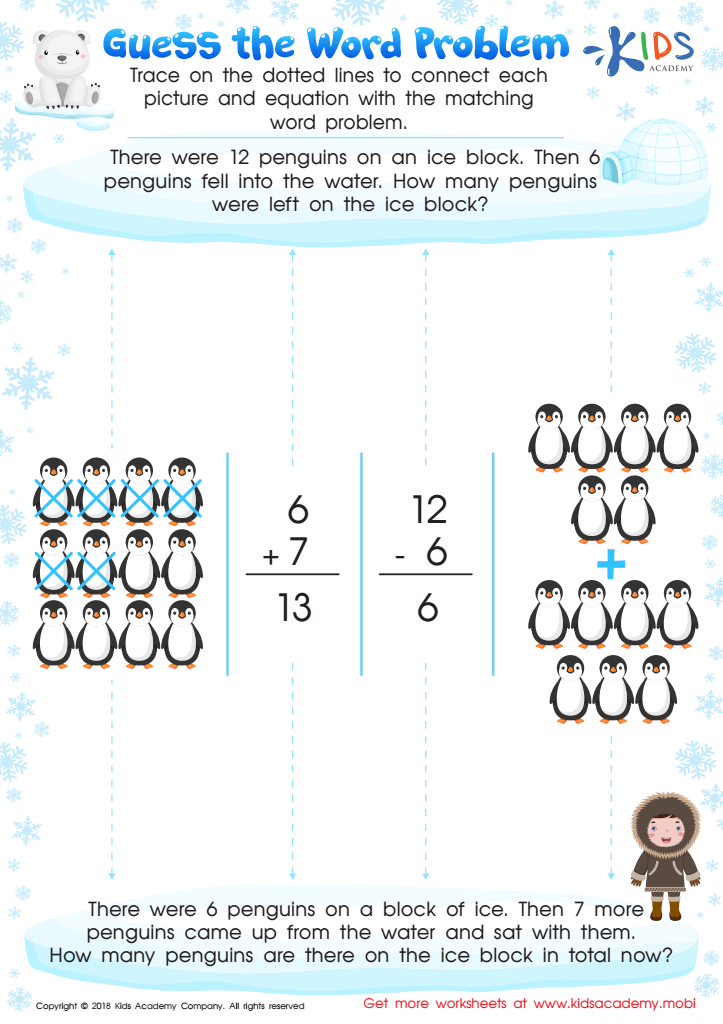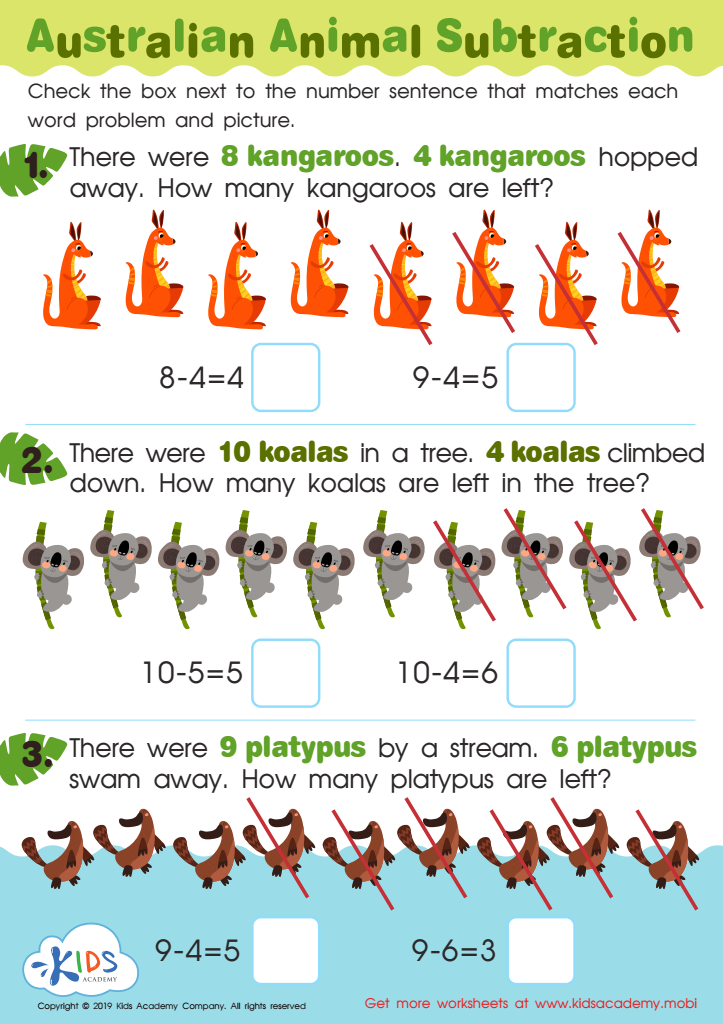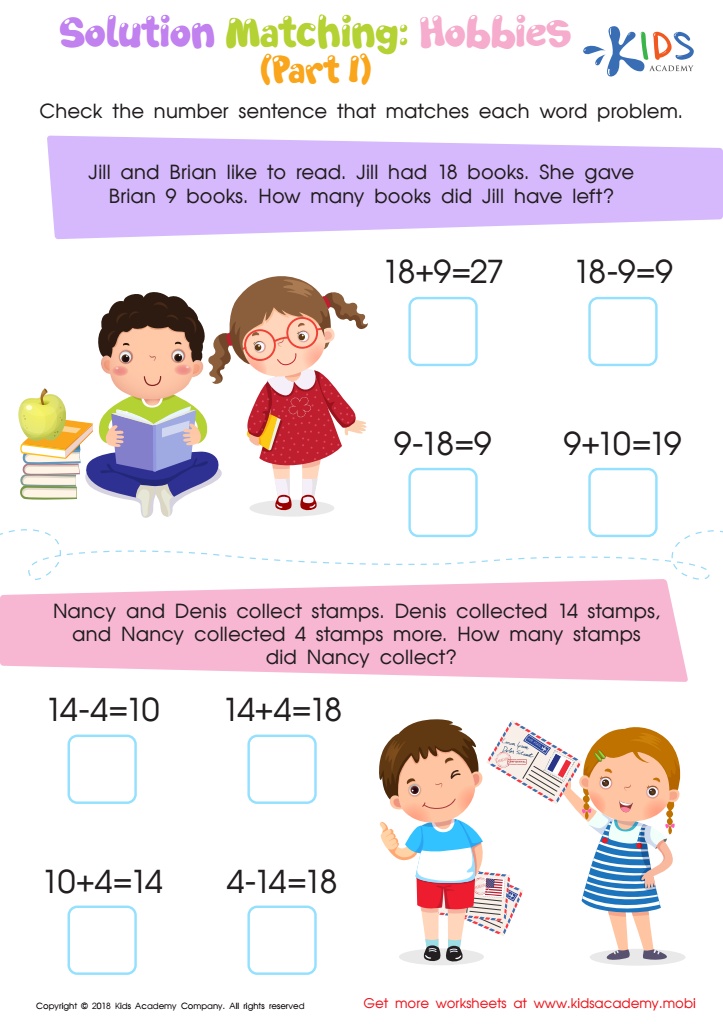Cognitive Development Word Problems Worksheets for Ages 4-7
4 filtered results
-
From - To
Our Cognitive Development Word Problems Worksheets for Ages 4-7 are designed to enhance young learners' critical thinking and problem-solving skills. Engaging and fun, these worksheets introduce addition, subtraction, and logic puzzles that stimulate brain development while making learning enjoyable. Each worksheet is age-appropriate, ensuring challenges align with students' developmental stages. Visual aids and simple narratives help children understand and solve problems independently. Ideal for classroom use or homeschooling, these printable resources support foundational math skills and cognitive growth. Give your child a head start with activities that bolster their mental agility in an exciting way. Visit Kids Academy for more!


Enrichment -2 Step Word Problems Worksheet


Guess the Word Problem Worksheet


Australian Animal Subtraction Worksheet


Solution Matching: Hobbies. Part 1 Worksheet
Cognitive Development Word Problems are crucial for children ages 4-7 because they lay the groundwork for critical thinking and problem-solving skills. At this stage, children's brains are highly plastic and receptive to new information, making it an ideal time to introduce complex cognitive tasks in a fun and engaging way. Fostering cognitive skills such as memory, attention, logic, and reasoning enhances their ability to tackle more challenging academic subjects in the future.
For parents, engaging in these types of activities provides a unique opportunity to bond with their child while observing their developmental milestones, enabling early identification of potential learning difficulties. For teachers, integrating word problems into the curriculum facilitates a deeper understanding of each student's cognitive strengths and areas for improvement, allowing for tailored educational strategies.
Moreover, these activities promote patience, persistence, and the ability to consider multiple perspectives when solving problems, traits that are invaluable for social interactions and everyday life. Cognitive Development Word Problems also encourage language development and comprehension skills, as they require children to process instructions and articulate their thought processes. Overall, prioritizing these exercises helps develop a robust foundation for lifelong learning and adaptive thinking.
 Assign to My Students
Assign to My Students








.jpg)












